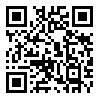BibTeX | RIS | EndNote | Medlars | ProCite | Reference Manager | RefWorks
Send citation to:
URL: http://frooyesh.ir/article-1-6077-en.html
2- Professor, Department of Psychology, Faculty of Educational Sciences and Psychology, University of Mohaghegh Ardabili, Ardabil, Iran. ,
3- Professor, Department of Psychology, Faculty of Educational Sciences and Psychology, University of Mohaghegh, Ardabil, Iran.
4- Professor, Department of Psychology, Faculty of Educational Sciences and Psychology, University of Mohaghegh Ardabili, Ardabil, Iran.
The aim of the research was to investigate the relationship between social health and fashionism, with the mediating role of need for social feedback in social networks and addiction to social networks. The research method was descriptive-correlation and path analysis. The research population was university students in Tabriz in the year 2023-2024, and among them, 397 students were selected as a sample by multi-stage cluster sampling. The research tools included the Social Network Addiction Scale (SMAS) by Khaja Ahmadi et al (2016), Scale of the need for social feedback on social networks (NfOSFS) by Duradoni et al (2023), the social health Scale (SHS) by Keyes (2004), and the fashion trend scale (FTS) by Amir Qasmi et al (2015). The data analysis method was path analysis. According to the results, the model had a good fit. The findings of the analysis revealed that social health had a significant and negative direct effect on fashionism (P<0.01). Moreover, social health exerted a significant indirect effect on fashionism through two mediating variables: the need for social feedback and social media addiction (P<0.001). Additionally, the need for social feedback emerged as a significant predictor of fashionism (P<0.001), and also played an effective mediating role through its influence on social media addiction (P<0.001). Overall, the results suggest that individuals with lower levels of social health, due to an increased need for social feedback, are more vulnerable to social media addiction. Consequently, they are more likely to be influenced by fashion-related content and advertising on these platforms, leading to a stronger tendency toward fashionism.
Received: 2025/03/1 | Accepted: 2025/05/23 | ePublished: 2025/08/1
| Rights and permissions | |
 |
This work is licensed under a Creative Commons Attribution-NonCommercial 4.0 International License. |





